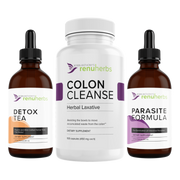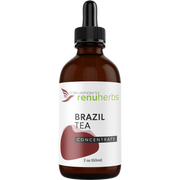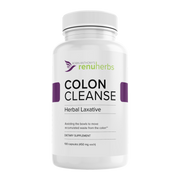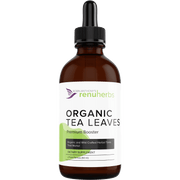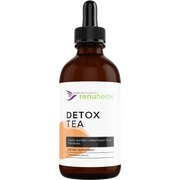7 Herbs that are Making Your Hormone Imbalance Worse

Hormonal imbalances can really impact a woman’s quality of life. Symptoms of anxiety, depression, insomnia and weight fluctuations have been long endured. Not to mention the guilt that follows the overwhelming mood swings and moments of agitation.
Fortunately, it’s not too late to end the nightmare. You can use a holistic approach to restore balance and get back to feeling like yourself again.
What does Hormonal Imbalance Look Like?
Women can experience different symptoms depending on the severity of hormonal fluctuations and their unique situation. Still, according to Healthline, the most commonly reported symptoms in women include:
- Unexplained weight gain or difficulty losing weight
- Fatigue
- Heavy or irregular periods
- Excessive facial hair
- Rapid heart rate
- Anxiety, depression, or irritability
- Acne
- Vaginal dryness
- Frequent infections
- Night sweats and hot flashes
- Low libido
- Mood swings
- Changes in appetite
- Pain or stiffness in joints
What Causes Hormonal Imbalances?
Some causes are more obvious than others, like the onset of menopause or the temporary transitions during puberty. However, there are other contributing factors that can cause imbalances in women at any age.
Menopause
Menopause is marked by the end of menstruation. This process typically starts between the ages of 40 and 60. However, in extremely rare cases women have experienced symptoms as early as 18. The most common symptoms associated with hormone imbalances due to menopause include hot flashes, insomnia, mood swings, depression, anxiety and weight gain.
Environmental Toxins
We live in a world full of toxins classified as phytoestrogens and xenoestrogens which mimic estrogen in our bodies. These hormone-mimicking toxins can cause estrogen dominance and corrupt the balance of other hormones, like progesterone.
Xenoestrogens are found in SPF, plastic water bottles, pesticides in our food, makeup, and most hygiene products like shampoos and conditioners. In other words, you’re getting plenty of excess estrogen whether you’re trying to or not.
Heavy Metals
Metals like mercury, aluminum and arsenic, to name a few, are naturally-occurring minerals. However, at high levels these metals are incredibly damaging to your health and wellbeing and can lead to complications like hormonal imbalance. High levels of these metals are found in some water supplies, low-quality rice, processed foods, and some health industry items like silver tooth fillings. Click Renu Silica for more information.
Stress
Who isn’t stressed? Stress is the root cause of numerous conditions. According to NASD stress is to blame for nearly 90% of all illnesses. We all have some stress in our day-to-day lives but chronic stress can influence a woman's hormone levels. Typical hormone imbalances due to stress can surface as those listed above, but primarily surface as irregular periods, irritability, changes in appetite and insomnia.
Weight
It always comes back to this doesn’t it? This study explains how fat cells produce and secrete excess hormones including estrogen. Therefore, maintaining a consistent and healthy weight is believed to influence healthy hormone levels. Likewise, eating a well-balanced diet supports hormone regulation while encouraging a healthy weight.
- Other underlying causes include
- Diabetes
- Prescription medication
- Thyroid conditions
- Eating disorders and
- Cancer treatments
Balancing Hormones Holistically
When it comes to addressing hormonal imbalances holistically, we need to look at multiple factors including diet, activity level, environment, and supplementation.
If you’ve sought out herbal remedies to combat symptoms brought on by menopause or hormone imbalances, chances are you’ve been recommended herbal supplements like:
- Black Cohosh
- Vitex (Chaste Tree Berry)
- Red Clover
- Dong Quei
- Flax and Primrose oil
- Soy products or
- Milk thistle
Here’s the problem with supplements like these: They’re all wrong!
These supplements are taking the wrong approach, falsely claiming that they will regulate your hormones. The truth? They will likely fuel your hormonal imbalance even further.
What’s worse is many supplement companies claim that if products don’t contain these ingredients, they aren’t of any benefit to you. I’m here to tell you that that can’t be further from the truth.
Why don’t these supplements work?
Many of these supplements have one thing in common: they have estrogenic effects. Now this might be a good thing for some women. Some women experience hormonal complications because they really are low in estrogen. If this were the case, it’s likely herbs like black cohosh could relieve symptoms by raising estrogen levels. However, for many women this is not the case.
Menopausal women may think this is what they need. After all, estrogen levels are much lower before and after menopause. Wouldn’t these supplements help? Actually, a study in 2015 found medicinal herbs including black cohosh were not proven to be beneficial in relieving menopausal symptoms. In fact, black cohosh itself was found to be hard on the liver - a vital organ for regulating hormone levels.
This is not to say these medicinal herbs are useless, but compared to other methods of supporting balanced hormones, they just don’t compare. According to National Institutes of Health the effects of medical herbs like black cohosh provided similar relief to that of a placebo and even worsened symptoms in some women after prolonged use.
They might work for a little while…
Generally speaking, when hormone levels are imbalanced, they are on a roller coaster with highs and lows, hence the mood swings that follow. When taking supplements like black cohosh or the others listed above, some women may experience relief at first. This could be because their estrogen levels are raised and kept from drastically dipping. However, low estrogen in itself is not the problem, it’s the irregularity. Without addressing the actual fluctuations, hormonal balance will never be long term.
According to some holistic chemists, a more effective approach would be to help the body release the excess that is causing the hormonal imbalance in the first place. This is when the body can finally level out naturally.
The Liver’s Role in Hormone Regulation
The liver is where your focus needs to be if you are looking to balance your hormone levels. The liver is responsible for ridding the body of excess hormones that might otherwise build up in your system. If this vital organ is not functioning properly you end up storing and reabsorbing the excess hormones into the bloodstream.
This is what leads to symptoms of hormonal imbalances like hot flashes, insomnia, acne, mood swings and sugar cravings.
To relieve symptoms most efficiently you need to help your body return to homeostasis. Your body knows what it needs to do to be healthy, so all you need to do is supply it with the right tools. In the case of hormonal imbalance, you don’t want to consume foods like soy or supplements like black cohosh that contain estrogenic properties. This risks making matters worse. Instead, you can find relief by supporting the body’s nutritional needs and the liver’s detoxification pathways.
None of the herbs listed above, with the exception of milk thistle, support the liver. Milk thistle addresses the issue partially and it may even provide an initial boost to cleansing the liver. However, when taken regularly, it’s estrogenic properties can build up in your system triggering the same symptoms you were battling before.
One way in supporting the body’s natural flow would be improving circulation. Formulas like like Organic Tea Leaves, that excludes milk thistle and other phytoestrogens improve circulation to the uterus, liver and other vital organs throughout the body. Healthy circulation helps to regulate menstrual flow, energy production, and detoxification pathways.
Beyond Supplementation
Supplementation is not the only factor to consider. When addressing hormonal imbalances holistically, it’s important to look at the big picture. The best way that I have found to do this is by looking at what contributing factors need to be reduced, removed entirely, and replenished or restored.
Reduce
Excessive consumption of caffeine and alcohol, and chronic stress can aggravate symptoms of hormonal balance even further. These are some factors that compromise the liver and adrenals, disrupting the endocrine system. As a result, your body loses the ability to correct the problem and can intensify symptoms. Reducing your intake of alcohol, caffeine and implementing stress management techniques can help you to restore balance to your hormones.
Remove
If hormonal imbalances are being caused from a specific source, these sources first must be removed. The xenoestrogens we touched on early that are present in make-up, sprayed foods, and plastics can all be easily removed. When possible, opt for glass instead of plastic. Purchase organic produce and hormone grass fed free meats and look for make-up and bath products free from phytates, sulfates, and parabens. It’s also crucial to avoid soy-based foods as much as possible to prevent further hormonal disruption.
Replenish
Giving your body the right nutrition can make a world of difference in rebalancing your hormone levels. A whole food diet complete with plenty of vegetables, fruits, beans, and whole grains can supply your body with the macro and micronutrients it needs to function optimally. If you feel you need more support, you can try Organic Tea Leaves that has been blended to support general health and well-being. Many women using it have reported a greater sense of balance and harmony in their hormone levels.
Summing it up
The road to restoring hormone balance can be challenging at times. First and foremost, it’s important to know what foods, supplements, and products you are using that could be fueling the fire. By removing the general sources, reducing your intake of endocrine disruptors (alcohol and caffeine), and replenishing your system with a rich whole foods diet.
As you foster a lifestyle around these holistic practices you can more easily find the ebb and flow of a healthy hormone synergy.
